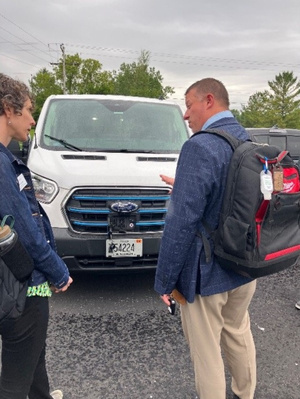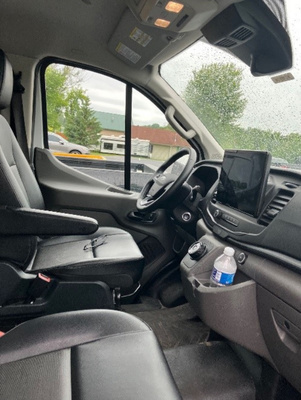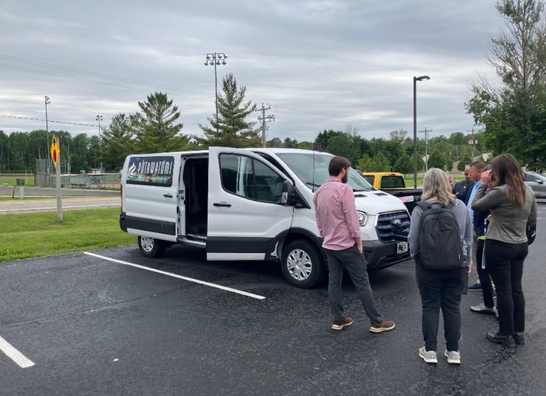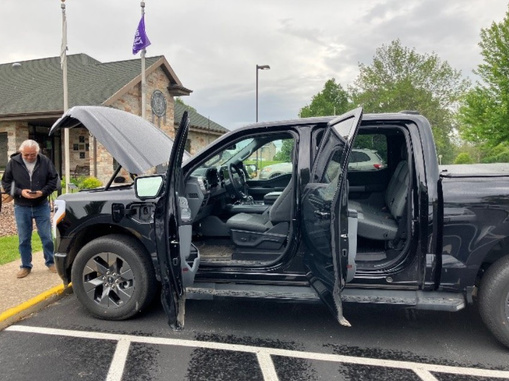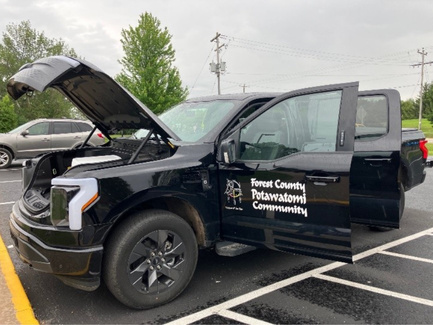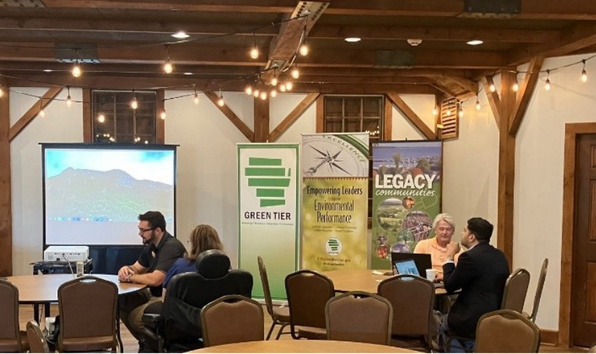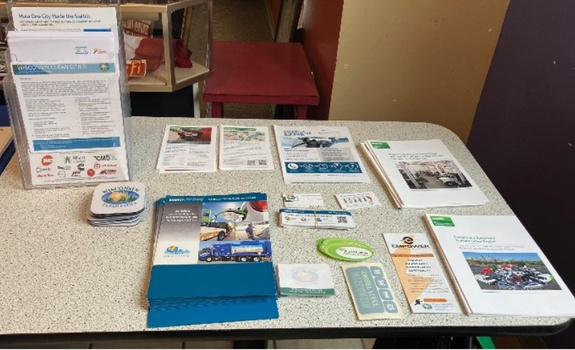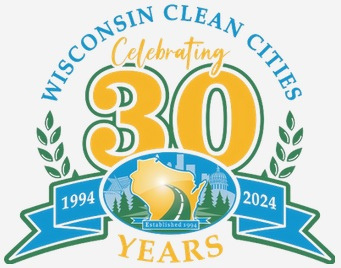
Wisconsin Clean Cities Newsletter


June 2024
fschnook@wicleancities.org | (262) 362-1228 | www.wicleancities.org
We’re turning 30!
Wisconsin Clean Cities was formed June 29th, 1994.
Your collective support of our mission has made a huge difference!
You helped reduce
1.7 million tons of greenhouse gas emissions
You helped reduce the use of gasoline by
354 million gallons
You helped save 8.4 million barrels of oil
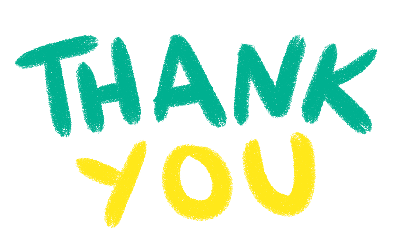
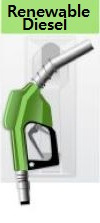
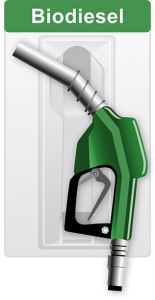
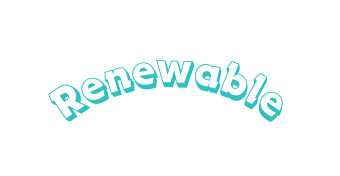
Versus

What’s the difference?
Renewable diesel and biodiesel fuel may start the same, but the process by which they are made is different.
- Renewable Diesel is the result of a hydrogen treatment that removes oxygen from fats and oils, creating pure hydrocarbons. It is so similar to fossil fuels that it can be used interchangeably, no blending is required! Renewable fuels can replace traditional diesel fuel in the same pipelines, storage tanks, and diesel engines: This is why it’s also called “drop in” fuel.
- Biodiesel is manufactured via an esterification process that is less complex and retains some oxygen. For this reason, it is used as an additive blended into diesel (between 2-20% of the blend).

In 1890, Rudolf Diesel designed an engine to run on a variety of fuels, including vegetable oil. Because petroleum was cheaper and more readily available, few people were interested. When petroleum entered short supply during WWII and the oil embargoes of the 1970s, people turned to biodiesel.
This created a small but sustained interest until biodiesel became commercially manufactured in the US in 1991. Soon after, it was adopted by national park fleets for cleaner emissions.
More advances in the fuel refinement process have since been made, leading to a process that completely removes oxygen, forever differentiating Rudolf’s biodiesel from renewable diesel.
Hot ofF the press
News you can Use
Extreme H car shows hydrogen fuel cell cars can be robust
Gen X, Millennials buy the most EVs, Boomers dominate policy
BMW Says M Electric Sedan Will Beat Everything You’ve Ever Seen
Unlocking the Biodiesel and Renewable Diesel Income Tax Credit
Federal clean energy program includes incentives for nonprofits
Nexio looking to bring propane-powered bobtail to US market
Used EV prices have plummeted, now stand below ICE prices
Report: Kia EV3 may be made in Mexico to hit $30,000 price
Wisconsin awards $23.3M in federal charging station grants
Study Shows Benefits of FFVs and Low Carbon Ethanol
OEM Panel Takes Deep Dive into Electric Truck Market
Kwik Trip supporting Wisconsin’s charging network
Compressed Natural Gas Forecast for 2032
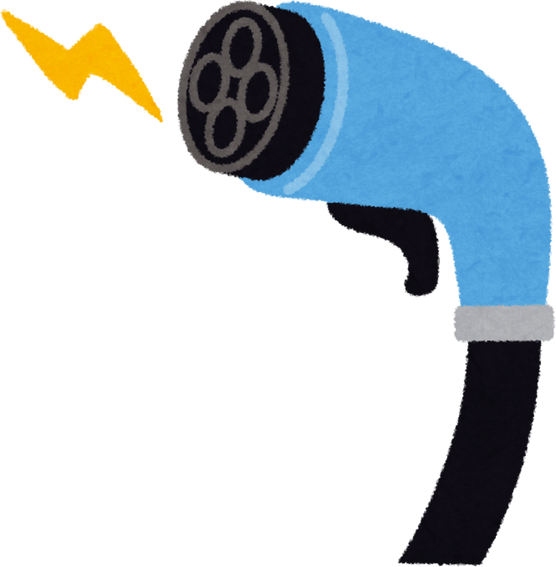
Click the map to see the Department of Transportation’s proposed 64 EV charging stations in Wisconsin
Please click the paper to take a short survey so we can serve you better!

announces
Executive Director

Former Mayor of the City of Ashland, Wisconsin. Fred established the city as one of the first Eco-Municipalities in the nation, bringing international recognition. These efforts helped Mayor Schnook to increase federal and state funding to Ashland by over 350% from the previous administration. He mobilized a group of community residents to provide a volunteer workforce in accomplishing city goals for much needed policy changes and infrastructure development.
Fred explains: “We created a sustainable vision for the community to rally around. Developing sustainable practices saved the city tens of thousands of dollars and brought in millions of dollars in new public infrastructure and private development."
Additionally, Mr. Schnook served as a consultant with Foth, Inc., providing sustainable planning practices and projects to private sector enterprises and municipalities across the mid-west. With a strong background in Economic, Community and Workforce Development, Fred also served as the City and Village Administrator in Kewaunee and Mukwonago, Wisconsin. Schnook also served as Wisconsin’s representative to the Great Lakes Commission, his leadership was recognized by The Lake Superior Waterkeepers for outstanding service in Great Lakes protection and restoration.
Mr. Schnook has lectured at the University of Wisconsin-Green Bay, Northland College, Milwaukee Area Technical College, Nicolet Technical College and numerous conferences and workshops around the mid-west on subjects including Sustainable Planning & Development, Economic Development in the New Economy, Eco-Industrial Park Design and Creative Cities. Fred has a master’s degree in public administration from the University of Wisconsin-Oshkosh.
Chairman Brad Schmoll stated. “We look forward to continued growth and success under Fred’s leadership. We also wish to thank Lorrie Lisek and Legacy Environmental for over thirteen years of dedicated service to Wisconsin Clean Cites and the businesses and communities we serve. We wish her all the best in her future endeavors.”

ATTENTION SCHOOL BUS OWNERS & OPERATORS
The EPA’s Clean School Bus Program provides $5 billion to replace school buses with low-emission and zero-emission school buses. The EPA partnered with NREL’s $5 million Clean Bus Planning Awards Program to provide free technical assistance to create comprehensive and customized bus electrification plans for fleets. Are you signed up to get this free assistance? The next session is July 24th at 1 p.m., with a webinar on the 4th Wednesday of every month through September. See more info
It’s been a busy month for Wisconsin Clean Cities!

Wisconsin Forest County Potawatomi brought their new all-electric Ford F150 Lightning to test.
Here is a new term to learn:

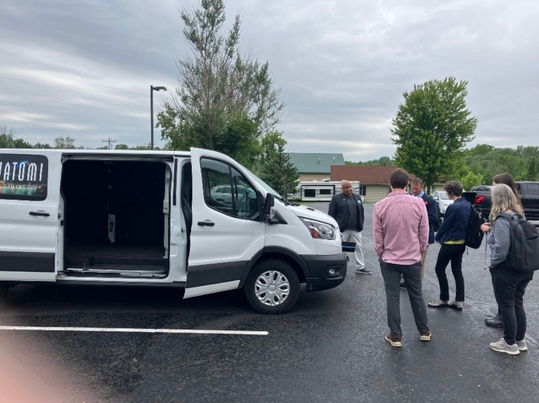
Wisconsin Clean Cities coalition member Andrew Byrne, Director of EV Products and Markets with Potawatomi Ventures brought an electric van to test ride.
“FRUNK”
the trunk space in the front of an electric vehicle.

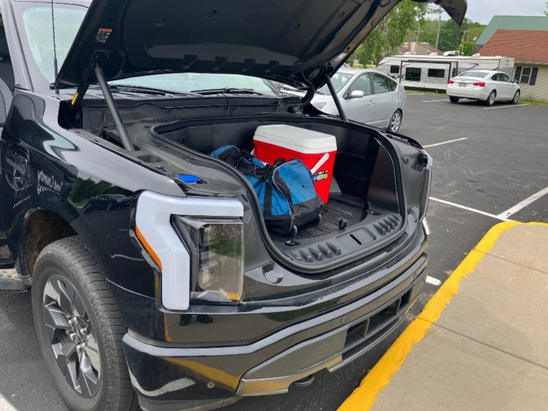

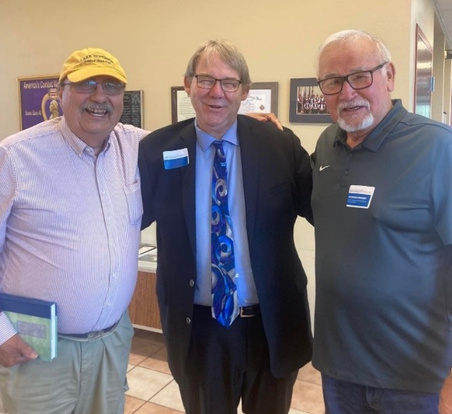
Wisconsin Clean Cities new incoming Director, Fred Schnook, visited with old friends, former Tribal Judge Richard Ackley & former Bad River Tribal Chairman Ray DePerry
Board Member
Spotlight

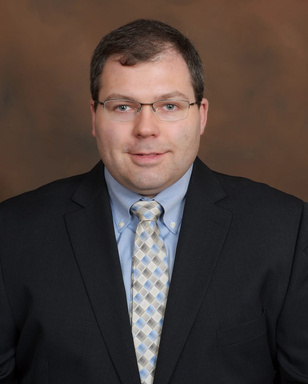
Brian WHite
Fleet Services Manager for Wisconsin's largest City, Milwaukee. Brian is responsible for the overall management of the City's municipal fleet, consisting of over 3,000 units. Brian began his career from the ground up; First serving as a mechanic in the private sector after attending Wyoming Technical Institute of Laramie. While working full-time, Brian returned to school and earned a degree in Business Administration, with a perfect 4.0 GPA! While employed with the city, Brian has earned numerous promotions and spearheaded a myriad of clean technology adaptations such as moving Milwaukee's patrol fleet towards hybrids and transitioning to synchronized emergency lighting systems. Brian has a wealth of experience in public service, mechanics, and fleet management. His goal is to modernize and integrate technology into all aspects of Fleet Services and Operations, while establishing apprenticeship programs to provide high school students with marketable job skills, simultaneously creating a recruitment pipeline for skilled trades positions within the city.
Why did you join the WCC Board?
Milwaukee has a longstanding relationship with WCC, having worked collaboratively on a number of projects over the years including transitioning a large portion of or refuse fleet to run on compressed natural gas, and I want to develop and grow that relationship.
What do you love most about your industry?
I have always been an early adopter. I am excited about how new technology in the fleet and transportation industry can be leveraged to fight climate change and improve our environment. Fleets are in an excellent position to adopt electric vehicles, and I am very optimistic about where future battery technology will take us.
What advice would you give to someone who wants to enter your field?
I think you need to be willing to put in the time and effort to work your way up. There’s no specific degree or training that prepares you for fleet management – I think there is tremendous value in having experience in both the mechanical/technical side as well as the business side of it.
What’s something about you (a fun fact) that not many people know?
I was once a plaintiff on a syndicated court show that dealt with small claims. It was an entire half hour episode. Not exactly “must see TV”, but I did win my case.
What other topics do you have a lot of knowledge in/are passion about?
I am fascinated by statistics, and specifically how they apply to games of chance and gambling. The entire casino industry is built upon a slight statistical

advantage and the willingness of gamblers to rationalize their actions despite the statistical
certainty of loss. While it’s completely possible to win, statistically, the longer an individual plays, the more likely they
are to regress towards the mean.
The EPA finalized a major new rule to curb vehicle pollution. This rule represents the toughest standards to date for emissions in the US. More regulations to tackle emissions from the transportation sector are coming because the largest source of US emissions derives from transportation, especially light-duty vehicles.
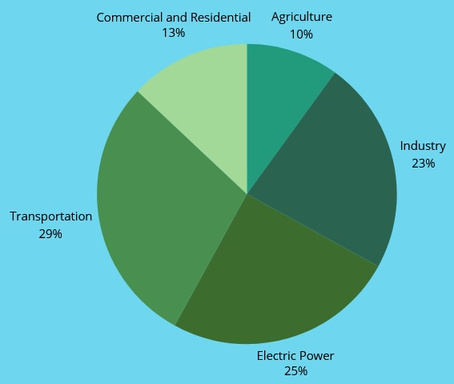
To meet the country’s net-zero goals, the US must eliminate nearly all emissions from the transportation sector by 2050.
To accomplish this, the EPA unrolled a sliding scale of annual reduction it expects businesses to meet.
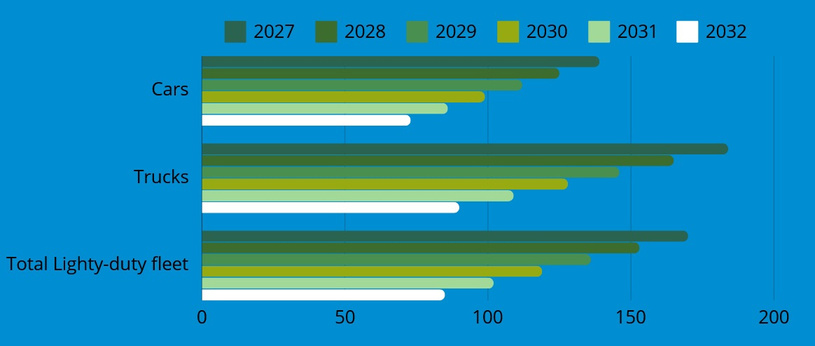
Some of the new requirements that may affect you are:
- Car manufacturers must meet new emissions standards for cars, SUVs, light pickup trucks, medium-duty large pickups, and vans for model years 2027–2032.
- In order to be compliant, carmakers must halve the emissions for model year 2032 as compared to model year 2027.
- Companies that do not meet the standards will be liable for penalties.
Start now while the financial incentives are available!
Considering a switch to an
Electric Vehicle?
There's never been a better time!
Consumers, dealers, and fleets (including tax-exempt fleets) can benefit from updates to the clean vehicle tax credits that save money on EVs and infrastructure.
- Consumers: Tax credits up to $7,500 are available to purchase eligible new EVs and $4,000 for eligible pre-owned EVs. Customers can transfer the credit to a dealer and lower the price!
- Dealers: Customers can transfer their clean vehicle tax credit to sellers if they are registered with the IRS’ Energy Credits Online and meet IRS qualifications.
- Fleets: Businesses and tax-exempt organizations that buy a qualified vehicle may obtain a $40K tax credit per vehicle under Internal Revenue Code IRC 45W. Tax-exempt entities can readily access these tax credits through direct pay. Register for direct pay on the IRS website.



Member
spotlighT
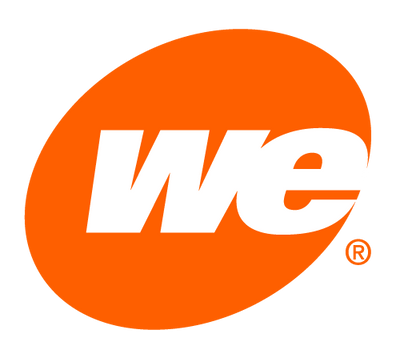
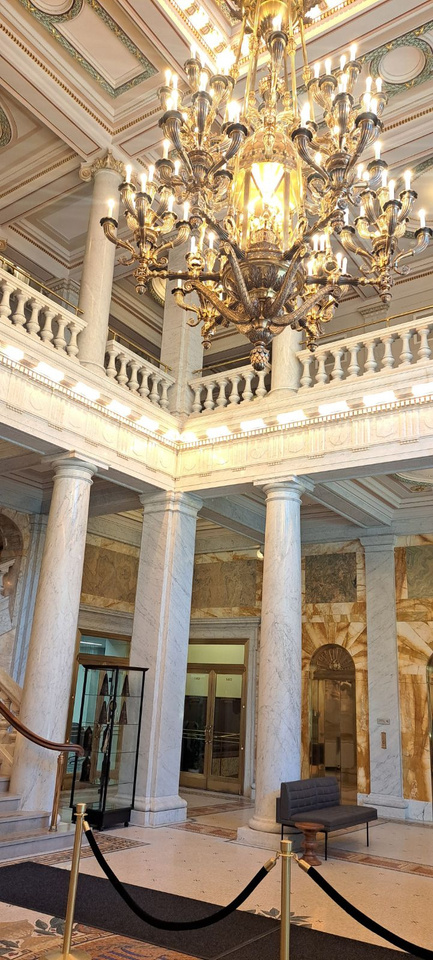
We Energies is the largest electric and natural gas utility in Wisconsin, serving more than 2.32 million customers. We Energies provides homes and businesses across the state with affordable, reliable, and clean energy. The company owns the largest solar and wind facilities in Wisconsin and is planning significant new investments in renewable energy to serve customers now and for decades to come. We Energies is also currently piloting business and residential EV charger programs to help install EV power charging infrastructure to serve their customers’ all-electric and plug-in hybrid vehicles. Learn about their pilot programs and pricing by visiting https://www.we-energies.com/


Founded in 1896, We Energies is headquartered in the beautiful Public Service Building of Milwaukee, where they graciously host the Wisconsin Clean Cities coalition offices. We Energies is a subsidiary of WEC Energy Group, though the group was formed in 2015, its predecessor companies carry over a century of history, which the Public Service building is a notable part of. Erected in 1902, in the hopeful spirit of electrifying then burgeoning Milwaukee, the We Energies headquarters is a neo-classical work of art constructed of Italian marble, stained glass, and cast brass fixtures throughout. It boasts an art deco auditorium, romanesque tiled mosaic entryway, grand staircase, and opulent chandelier. This hidden gem has an array of historical hints such as trolley service doors, suction mail chutes and restored original portraits of its visitors throughout the eras.
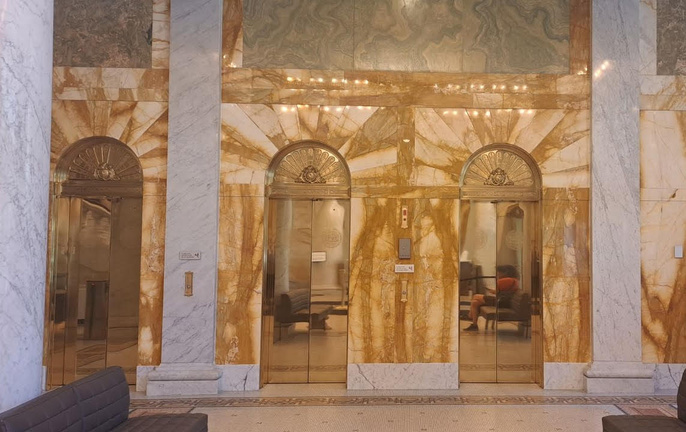

Lorrie Lisek, esteemed director of Wisconsin Clean Cities since 2011, has secured more than $40 million in funding for coalition and advanced fuel and technology projects. She was inducted into the U.S. Department of Energy’s Clean Cities Hall of Fame in 2015.
As an accomplished businesswoman, Lorrie has decided to pass the torch in the race to drive Wisconsin’s commitment to sustainable transportation forward. Dedicated to the cause of leaving behind a better world, Lorrie graciously agreed to linger for continued mentoring to ensure a successful transition. Lorrie shall remain president of Legacy Environmental Services, her chief occupation since 2003. She will also continue to serve Drive Clean Indiana in an executive leadership position.

for 13 years of expert service and all you have done for the state of Wisconsin.
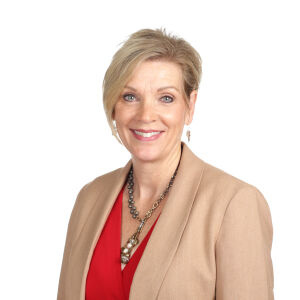

WCC offers multiple levels of membership at different price points and benefits.
- Do you want members-only access to the contacts in our database?
- Recognition for being a leader in sustainability via our media and events?
- Access to funding opportunities?
- Information regarding legislation?
- Access to training sessions, work shops, and conferences?
- Opportunity to network with experts in the industry and potential new clients?
- Opportunity to serve on the Board of Directors?
Access the membership form and apply online

